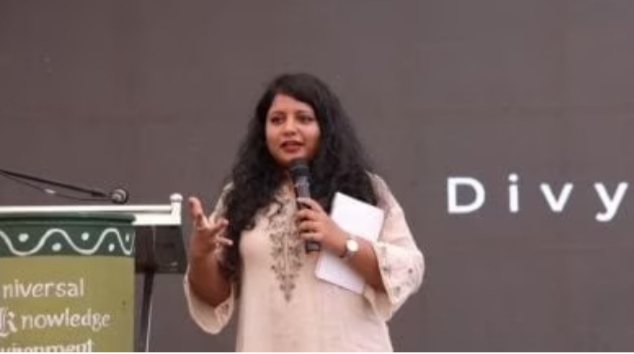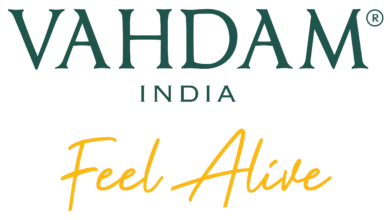Empowering Women, Combating Ocean Pollution: Divya Hegde’s Inspiring Journey

Here’s how a former Google employee is combatting ocean pollution through art, culture, and empowering women in coastal Karnataka.
Divya Hegde, a 38-year-old individual transitioned from being a former Google employee to becoming a climate change activist dedicated to combatting ocean pollution along the coastal Karnataka region. As a social entrepreneur, she has empowered women, folk artists, and the local fishing community in Udupi through her various social initiatives.
In 2013, she established an agency called the Integrated Penguin, which is also known as the ‘Tip Sessions.’
TIP Sessions, a coastal NGO originally incubated at IIM-B’s NSRCEL, has expanded its reach to encompass five districts in Karnataka. This organization conducts informative sessions covering a range of topics, such as career development, waste management, and sustainability, for students in Udupi.
The theme of Ocean Pollution through Art & Culture
Interestingly, in 2018, Hegde ventured into the realm of art and culture, leveraging the traditional folk dance form of Yakshagana, well-known in coastal Karnataka districts. The goal was to foster a shift in behavior across the coastal region of Karnataka, discouraging the disposal of plastic and other waste into the ocean. Yakshagana’s performances revolved around the theme of combating ocean pollution, with artists assuming roles such as PlasticAsura, Manava (human), Hasi Kasa (wet waste), and Ona Kasa (dry waste). The character known as ‘Plastic Asura’ symbolizes the detrimental impact of plastic on the ocean.
‘While combating plastic pollution is one aspect of our mission, through Yakshagana and other art forms, we aim to emphasize the importance of segregating dry and wet waste and proper disposal of sanitary pads. Leveraging Yakshagana holds special significance for the people of coastal Karnataka, and it also serves as an additional source of income for Yakshagana artists,’ explained Hegde.
Furthermore, Hegde introduced ‘Baeru’ (meaning roots), a branch of ‘TIP Sessions’ initiated in 2022, which focuses on achieving ‘ocean plastics circularity.’ To realize this goal, she adopted a comprehensive approach involving government partnerships, infrastructure development, and the creation of sustainable livelihood opportunities for coastal communities, with a particular emphasis on empowering women.
What are the impacts?
Baeru has recently taken on the role of operating India’s inaugural rural and coastal waste management facility, featuring a payback model designed to directly benefit the women involved in waste management. This achievement was made possible through a collaboration with the Udupi Zilla Panchayat and the Government of Karnataka.
Over the past 2.5 years, these women have successfully processed more than 15,000 metric tons of waste. Within this initiative, fishermen go out during the fishing season to retrieve plastics, which are subsequently processed by these women. Simultaneously, the women conduct door-to-door collections to gather land-based plastics that could otherwise reach the ocean, thereby contributing to the mitigation and recovery of ocean waste.
This endeavor has positively impacted over 350 women who earn a monthly income of Rs 10,000. Furthermore, Baeru redistributes a portion of its revenue from plastic sales to compensate the women employed in the panchayats.
Additionally, the organic waste resulting from wet waste processing is transformed into compost, which is provided to farmers free of charge and sold to compost-processing facilities.
‘The core focus of our initiatives is on empowering and supporting women, primarily because women in coastal regions bear a disproportionate burden of the impacts of climate change. During droughts, they often prioritize water for their families; during floods, they may lack swimming skills, putting them at a disadvantage. In medical emergencies, they often step back to care for their families. Even within the fishing community, it’s usually the women who go out to sell fish,’ explained Hegde.
As part of their efforts to enhance digital skills, Baeru has introduced a user-friendly waste management app designed for individuals with limited literacy. This app allows women to track waste collections using QR codes during door-to-door waste collection campaigns.
Conclusion
Hegde reflected on the challenges of their social entrepreneurship journey, acknowledging its difficulties while finding deep satisfaction in the positive impact achieved. Addressing ocean plastic recovery and mitigation remains a daily reality for activists like them. They aspire for a broader recognition of the importance of mitigating ocean pollution and aim to expand their initiatives to cover more panchayats and municipalities. Their approach integrates art, culture, technology, and the empowerment of women.
Hegde has been honored with the UN Women Leadership Awards and the Circular Economy Award, India by the International Circular Economy Forum in 2023.
The Disposal Company is leading the way in climate action in India, providing brands with a revolutionary platform that allows them to achieve plastic neutrality and carbon neutrality. Click here to discover how.




